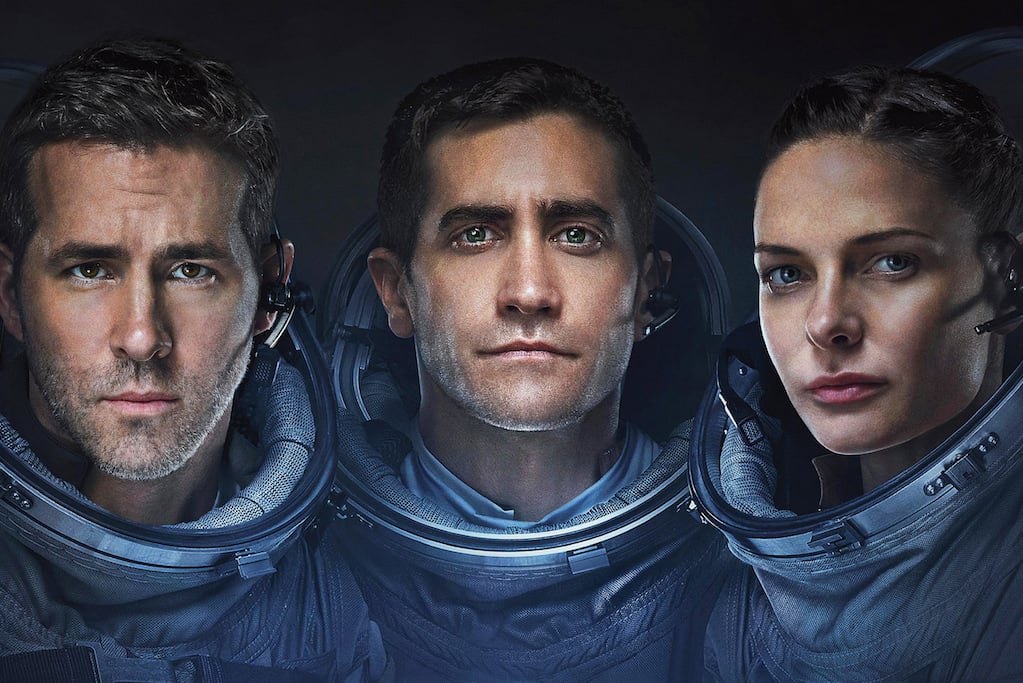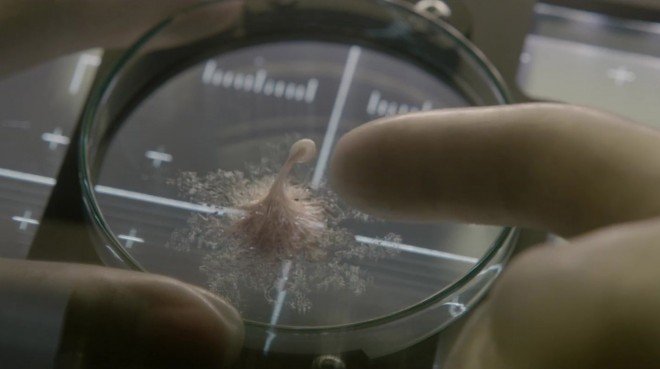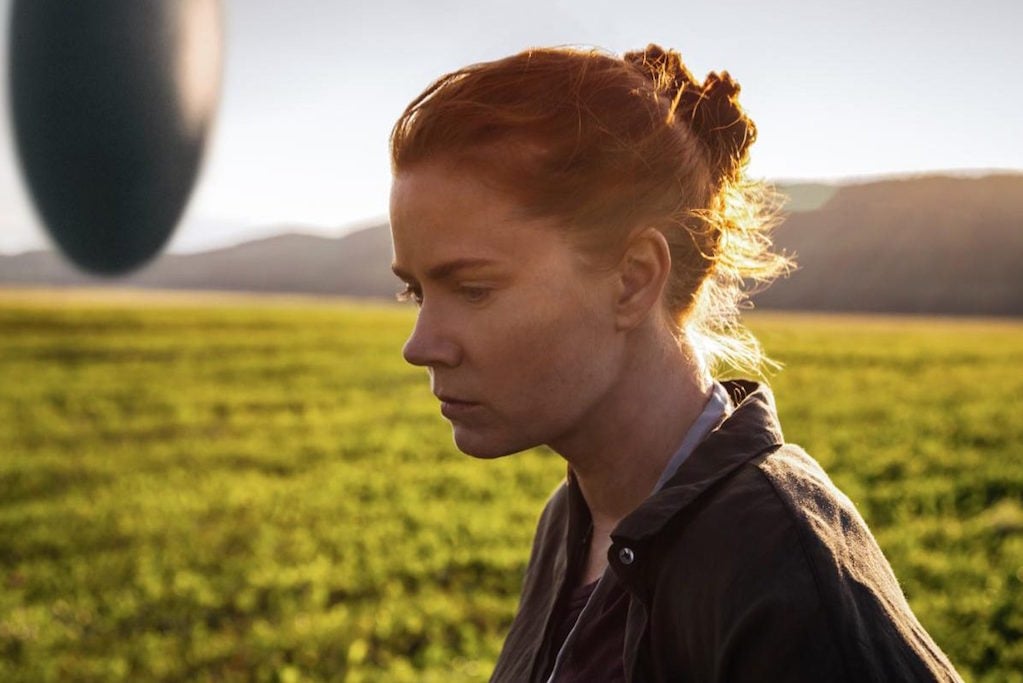Jake Gyllenhaal Vs A Giant Space Squid: What Is The Point Of ‘Life’?
It's like 'Alien'... except bad.

Ridley Scott recently announced that he wants to make six more films of the Alien franchise. Even if you agree the 1979 original is a masterpiece (it is) and are looking forward to Alien: Covenant (I am), six more movies sounds somewhat excessive. Especially since the is-it-or-isn’t-it-an-Alien-movie (it was) Prometheus from 2012 was considered a disappointment (I dug it).
2017 will be a good gauge of whether audiences are, as Scott suspects, keen for more Alien films. Not only will we see that evergreen franchise’s sixth entry (eighth if you include the Alien V Predator flicks) — the third under Scott’s direction — we also have Life.
Daniel Espinosa’s film isn’t affiliated at all with Scott’s highly-influential franchise, but it may as well be. In many ways, even at times from scene to scene, Espinosa’s film could pass for a remake of Alien. While certainly not beholden to thieving outright from just Scott’s groundbreaking film — it also liberally adopts elements of Gravity, Event Horizon and and The Martian also by Ridley Scott — the projector could alternate reels mid-film and you probably wouldn’t lose your way.
Creature Feature
Don’t let the big stars, the fancy setting, and (what they will tell you are) state-of-the-art visual effects fool you: Life is a straight-up shlock horror movie. It’s a traditional stalk-and-slash horror flick where the masked killed is replaced by a squid and the horny teenagers are astronauts. There are moments, too, of gruesomely gory fun like in one early protracted sequence involving zero-gravity blood.
Life actually opens with a really impressive sequence; a single-take shot (the first of its several nods to Gravity but we’ll allow it) that takes us through the interiors of the International Space Station. As the camera weaves and swoops through its interjoining compartments we’re introduced to its inhabitants. They include Jake Gyllenhaal (soulful), Ryan Reynolds (jokester), Rebecca Ferguson (wise) and all of the people of colour who will become easy fodder for an ever-growing alien specimen that has been rescued from a compromised mission to Mars.
The excitement doesn’t last long as it soon enough falls into the same narrative beats that you would expect from an Alien-style screenplay by the writers for G.I. Joe: Retaliation and Deadpool. The film treats its characters — scientists and astronauts with IQs no doubt in the MENSA range — like idiots with no more than one single defining trait to separate them from the rest. They detail the most basic concepts to each other, explaining exactly what we’re watching happen on screen. Intergalactic wonder soon turns to danger, then turns to a fight for survival. Smart people do dumb things, of course, but smart things are frustratingly undone by dumb filmmaking decisions. Rinse, repeat.
When it’s not referencing earlier, better movies, Life appears to be avoiding saying anything of its own. By adding nothing new to the formula, it fails to make an impression. There’s a reason why certain slasher franchises became successful and others didn’t. It’s why we still talk about Alien and The Thing, but not Creature or Mutant.
Matters of Life and Death
From its basic set-up and narrative trajectory, to even the way it employs certain shocks (face-huggers are now no-less jumpy and no-less fatal hand-huggers) and plot twists, Scott’s Alien hovers over Life like a corpse. It sits there and gets it stink all over everything. It’s impossible to ignore.
One place where Alien’s influence isn’t entirely felt is, funnily enough, in the design of its actual alien. Unlike Alien, which had the truly out-of-this-world idea to hire H.R. Giger — who was known for his artistic blends of horror, anatomy and phallic imagery — the aliens in Life are a bit more rudimentary in design and impact. It’s at its most alluring both visually and dramatically in its earliest form as a cutesy, fibrous collection of cells nicknamed “Calvin” that sway to and fro with the movement around them.

It’s hard not to be disappointed by what Calvin eventually becomes: less shape-shifting and evolving, but rather a typically H.P. Lovecraftian creation limited by imagination. A Speedy Gonzales octopus that can zoom around the ship in seconds and defy any sort of real logic. It eventually grows into a shapeless, giant mass of tentacles where its defining characteristic is a bizarre anthropomorphic face. Why does it need a face? Who knows! But it’s hard to stifle a giggle when it eventually grows snarls and snaps seconds before devouring its human entrée.
I wonder whether part of my disappointment with Life isn’t right there to be found in its title — a one-word announcement that, (yet again) like Alien, is deceptively simple. It’s both all-encompassing and generic. It’s singular and yet enticingly full of possibilities. It hints at potential worlds ands entities to discover and ideas to explore while also suggesting something intimate and human, too.
Life is a film that offers none of this. It wasn’t even six months ago that we got the smart science fiction of Arrival, so we know it’s possible to borrow heavily (its similarities to Contact were, I felt, undeniable) and still be intelligent and exciting. And, look, criticise the very un-woke soap opera of Passengers all you like — and lord knows there was a lot to criticise in that Jennifer Lawrence/Chris Pratt sci-fi drama jaunt — but at least it had the semblance of an originality concept at its core.
It’s easy to make jokey puns — I’ve done a few in this review alone — but, really, what is the point of Life? Is there any meaning to Life? Is there life in Life? If there is, I struggled to find it. It’s easy to say “it should have been…” about any movie, but anything beyond its flaccid, refried Alien retread would have surely been better. As it is, this film has nothing of its own. It’s a watered-down replica that shows no signs of life on board.
–
Life is in cinemas now.
–
Glenn Dunks is a freelance writer from Melbourne. He also works as an editor and a film festival programmer while tweeting too much at @glenndunks.
